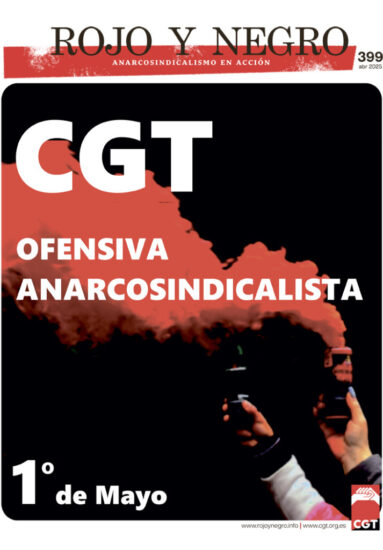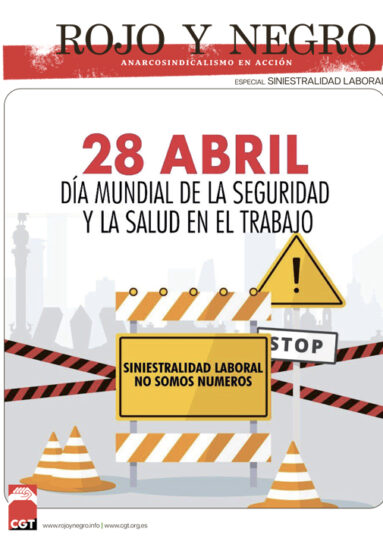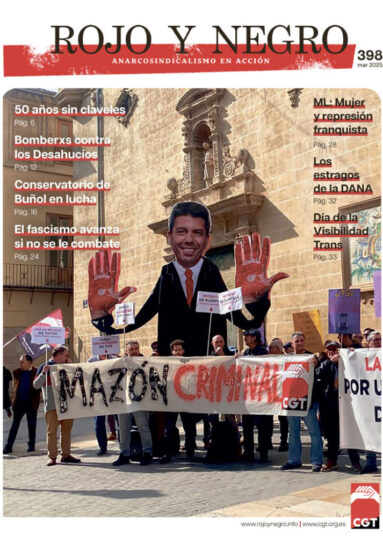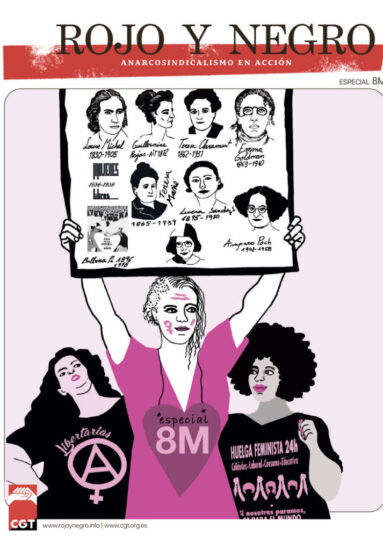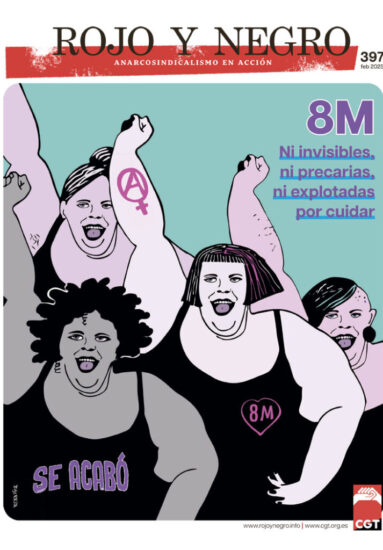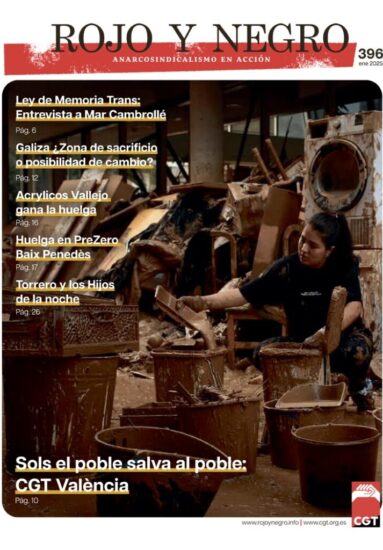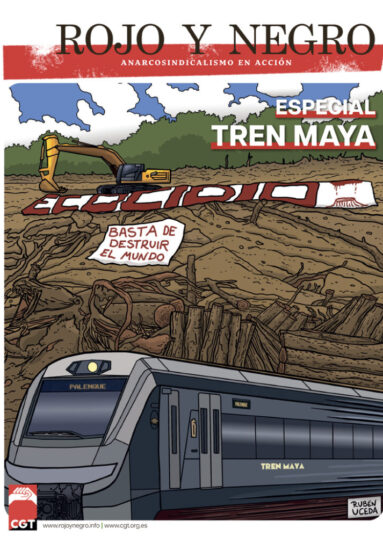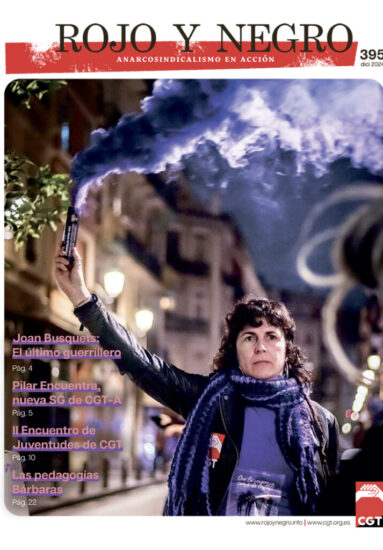H. L. Mencken dijo que, “La religión, como la poesía, no es sino un esfuerzo concertado en negar las realidades más obvias.” [Prejuicios : Tercera Serie]. A lo que pudiera haber añadido, la política. Claro que las realidades deben valerse de por si, y estar bien documentadas.
La repetición ayuda a transformar suposiciones en “hechos” – frecuentemente carentes de fuentes fidedignas – e implantarse en el dominio público. Recientemente lo vivimos al ser bombardeados día y noche por los políticos y los medios diciéndonos que el número de inmigrantes indocumentados en EEUU, criminalmente denominados por muchos como “ilegales”, se cifra entre 11 y 12 millones.
Dada la fiabilidad de cómo estos números han sido generados, no caería de sorpresa el que tal número se refiera tan solo a trabajadores indocumentados – sin tener en cuenta a familiares ya radicados en EEUU ; haciendo que la cifra total de indocumentados pudiera muy bien exceder los 18 millones. Y ya que estamos viviendo esta epifanía de transparencia y veracidad, por que no reconocer que probablemente existan entre 10 y 15 millones mas, esposos/as e hijos de estos indocumentados que se quedaron atrás, que es muy posible aspiren tener acceso a residencia en EEUU. ¿No tiene acaso lógica el que los incluyamos en el problema a resolver ? ¿O es ésta otra realidad obvia que los políticos se niegan a reconocer y barren bajo la alfombra ?
Queremos poner tejado nuevo a nuestra casa y no simplemente reparar unas cuantas goteras… ¿no es cierto ? Quizás el Congreso solo esté interesado en una chapuza que temporalmente saque de apuros a sus 535 miembros, pero el pueblo estadounidense se merece algo más, y también los inmigrantes. La rapidez no debe ser el foco de solución a este problema ; solo resoluciones que traigan acuerdo y justicia social.
Este debate de inmigración no es solo acerca de los indocumentados, cuyos derechos, dignidad y criminalidad están en juego, sino mucho más. La moralidad de los estadounidenses está en la cima del montón junto con el bienestar socio-económico de la nación ; y como termina resolviéndose esta cuestión de inmigración hará saber claramente quienes somos : a los millones de inmigrantes, al resto del mundo… y, principalmente, a nosotros mismos.
Percepciones o realidades, todos los aspectos de inmigración necesitan ser estudiados, no superficialmente sino a fondo. Y esto debe ocurrir antes de que el debate se renueve en la palestra, no solo en el Congreso, sino en las salas de estar de toda la nación. Si hay un tópico que requiere consenso en el país, éste lo es por antonomasia. No un consenso engendrado en una mentalidad de vigilantes, sino un consenso basado en realidades económicas, justicia y dignidad humana.
Hasta la fecha, el debate ha sido mínimo en las diferentes facetas sociales, económicas y geopolíticas ; y como esta inmigración de indocumentados esta afectando a la nación. En su lugar solo hemos tenido alguna que otra presentación acalorada en cuanto a lo que “se debe” hacer sobre cuestiones especificas, frecuentemente sin enfocarlas a la totalidad del problema. Diatribas estridentes, monólogos abrazando causas políticas o visiones estrechas de grupos con intereses propios ; pocas veces con los intereses del país por delante, y casi nunca con los intereses de los inmigrantes.
Entre la basura de prensa en circulación sobre la materia, y que el autor haya tenido el desagrado de leer, se encuentra lo escrito por Rich Lowry, redactor-jefe de la revistaNational Review,nuevo foro para el neo-conservatismo estadounidense. Sus dos últimos artículos exploraron, y explotaron, la cuestión de inmigración con el mismo desdeño y tono innoble aportado a sus títulos : “Importar al pobre no nos trae beneficios”, y “La traición liberal para los trabajadores de baja compensación”.
Pero no es su mal empleo y uso detestable de datos estadísticos, o la carencia de humanidad en su tono, sino el fraude que comete cuando trata de vender a sus lectores, condones llenos de agujeros… agujeros que están presentes en la punta de su análisis económico.
La contención clave de Lowry aparenta ser que los inmigrantes pobres, con o sin documentos, consumen mas en servicios gubernamentales que lo que pagan en impuestos, y esto hace al inmigrante un contribuidor “negativo”. Y aquí es donde empieza a hacer uso de su aguja. ¿Se le habrá ocurrido al Sr. Lowry que su forma de medir la creación de riqueza es totalmente absurda ? A una persona se la podrá pagar sueldo bajo, quizás tan solo la mitad o una tercera parte de lo que debiera ser un sueldo justo y competitivo… pero ¿quiere eso decir que esa es toda la riqueza que este individuo crea ? ¡Claro que no ! Simplemente, que la riqueza creada por los inmigrantes va a parar a otros bolsillos… los que los emplean (beneficios adicionales) y/o el consumidor (en precios más bajos).
Ya se es bastante miserable con los inmigrantes pagándoles una fracción de lo que su trabajo merece, y el ir mas allá, criminalizándoles y robándoles su dignidad, diciéndoles que se quedan cortos pagando por los servicios que obtienen, es insultar con recochineo a alguien que ya hemos perjudicado.
El problema no es simplemente uno de fronteras “rotas” ; o uno de soberanía ; o uno de seguridad nacional ; o uno de economía ; o uno de perdida de identidad. Y tampoco es el problema uno de racismo ; o uno de explotación ; o uno de falta de compasión. Todos los aspectos de la cuestión de inmigración, sin excepción alguna, necesitan ser cuantificados y analizados antes de que el problema, en su totalidad, pueda ser resuelto. En esta búsqueda no es la conveniencia lo que debe preocuparnos, sino la amplitud y precisión de nuestro enfoque. El problema necesita resolverse de una vez para siempre, y no podemos permitir el aceptar una solución legislativa defectuosa como la que el Congreso nos dio hace dos décadas.
Estamos empezando a cosechar lo que plantamos en nuestra marcha hacia el capitalismo global ; marcha que nuestra elite azuzó fuera “a toda velocidad” hace un cuarto de siglo con el consentimiento de ambos partidos políticos. No debe sorprendernos el que EEUU se haya convertido en exportador de trabajos bien remunerados, e importador de la mano de obra del tercer mundo. Así es como opera el capitalismo global. Lo que no podemos hacer es permitir que sea el inmigrante indocumentado el chivo expiatorio por nuestro proceder.
Realities intertwined with undocumented immigration
H. L. Mencken said that, “Religion, like poetry, is simply a concerted effort to deny the most obvious realities.” [Prejudices : Third Series]. He could have easily added politics. Of course, realities need to stand on their own merits, be themselves documented.
Repetition helps transform guesses into “facts,” often free from ultimate source citation as they forcefully enter the realm of public knowledge. Most recently, we have been hearing non-stop from politicians and the media that the number of undocumented people in the United States, criminally-tagged as illegals by many, is somewhere between 11 and 12 million.
Given the sources’ reliability, and the helter-skelter method of putting the figures together, it would come as no surprise if that range refers to undocumented workers — without accounting for some family members already living in theUS ; and that the figure of undocumented residents could well exceed 18 million. And while transfixed in this epiphany of honesty and transparency, we should also acknowledge that there might be an additional 10-15 million people vying for eventual residency, if we count the spouses and children left behind by the undocumented border-crossers laboring here. It would seem logical, no ? Or is this one more obvious reality that politicians can simply deny, sweep under the carpet ?
Hey, we want to re-roof the house, not just patch up a few leaks, right ? Congress may be looking for just a patching job to get their 535 members temporarily off the hook, but Americans deserve better ; and so do immigrants. Time should not to be what drives this issue, but rather a meaningful solution bringing accommodation and social justice.
This immigration debate is not just about those people without proper documentation whose rights, dignity and criminality is at stake, but much more. Americans’ morality is at the top of the heap together with the socio-economic well-being of the nation ; and how the immigration issue is ultimately resolved will relate clearly who we are : to those millions of immigrants, to the rest of the world and, most importantly, to ourselves.
Perceptions or realities, all aspects of immigration need to be studied in depth, not just touched on. And thoroughly, before debate hits the floor, not just of Congress, but of every family room. If there is one issue that requires national consensus, this is it. Not a consensus birthed in a vigilante mentality, but one based on economic realities and justice, as well as human dignity.
To date, there has been precious little debate on the myriad social, economic, and geopolitical facets of how this type of immigration affects the nation. Instead, we have had nothing but heated presentations of what needs to be done on specific issues, often with total disregard as to how that issue might relate to others. Just strident tirades, monologues espousing political causes or narrow visions of special interests groups ; seldom the best interests of the nation, and almost never those of the immigrants.
Among printed trash that I have had the displeasure to read of late on the subject, the most politically fraudulent has been penned by Rich Lowry, editor ofNational Review, a redesigned forum for American neo-conservatism. His last two columns explored, and exploited, the issue of immigration with the same disdain and ignoble tone exhibited in the articles’ titles : “Importing the poor brings us no benefit ;” and, “The liberal sellout of low-wage workers.”
But it isn’t his detestable misuse of statistical data, or the lack of humanity in his tone, but the fraud he is perpetrating as he tries to peddle to his readers, condoms full of holes… holes that are unequivocally present at the tip of his economic rationale.
Lowry’s key contention appears to be that poor immigrants, documented or not, consume more in government services and benefits than they pay in taxes. Thus, to him, these people are a negative to our economy. And that’s where he reaches for the needle and starts puncturing holes. Has it ever occurred to Mr. Lowry that his way of measuring wealth creation is totally absurd ? A person can be paid very low wages, perhaps only half or a third of what should be a fair wage… but does that mean that’s all the value created by that person ? Of course not ! Simply put, the lion’s share of the wealth immigrants have created has found its way to the employers’ coffers (through greater profits) and/or the consumers (via lower cost for goods and services).
It’s bad enough to be miserly with immigrants, and pay them a fraction of what their work is (or should be) worth … but to go beyond, criminalizing them and robbing them of their dignity, telling them they aren’t earning their keep, that’s adding insult to injury.
The problem is not just one of broken borders ; or one of sovereignty ; or one of national security ; or one of economics ; or one of loss of identity. And neither is the problem just one of racism ; or one of exploitation ; or one of lack of compassion. All aspects of the immigration issue need to be quantified and qualified before the overall issue can be resolved ; none, absolutely zero, should be swept under the carpet. In this quest to solve the immigration problem, it’s not expediency we are after, but comprehensiveness and accuracy. It needs to be done right once and for all, and not allowed to become a reenactment of the narrow-vision legislation passed by Congress two decades ago.
We are beginning to harvest the fruits of our march towards globalization ; one that was given the “full speed ahead” a quarter-century ago by our nation’s power elite… with the total consent — or complicity – of both political parties. It should come as no surprise, then, to findAmericaoutsourcing its good jobs and “insourcing” third world labor. That’s what capitalism is all about… or are we going to make immigrants the scapegoats for our “addiction” to capitalism ?
© 2006 Ben Tanosborn
Fuente: Ben Tanosborn



